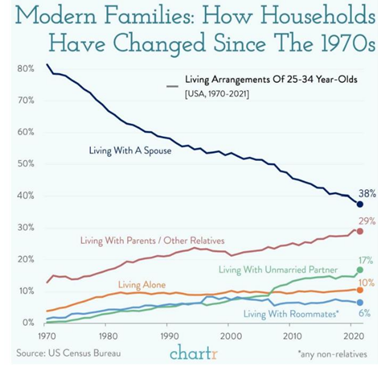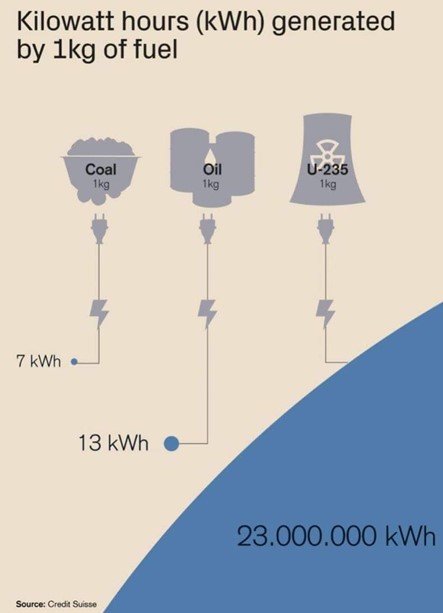This week in charts
Declining working-age population in the U.S., China, Europe and Japan
Capacity for ammonia, a key fertilizer, is down
‘Most active fund managers should quit’
In [Blue Whale co-founder Stephen] Yiu’s view, the vast middle ground of more conservatively run active strategies, including most of the offerings from large fund houses, should go.
In the first half of this year, just 30 per cent of active funds have performed better than passive alternatives tracking the markets in which they invest, according to research from investment platform AJ Bell.
The bulk of the UK active management industry, Yiu argues, does not devote enough personnel to stock picking and tends to hedge bets by having a large number of stocks in a portfolio. Lack of time to do extensive research makes fund managers reluctant to make bold calls.
“There is a lot of career risk if you don’t have enough resources,” said Yiu, 44, who worked as a fund manager for larger companies including Artemis and Hargreaves Lansdown before Hargreaves backed him to launch Blue Whale, seeding the fund with £25mn of his own money.
The Impact of Uncertainty on Behaviour
There is an important distinction between risk and uncertainty (ambiguity). For example, when we roll dice, we can calculate precisely the odds of any outcome. And using actuarial tables, we can calculate the odds of a 65-year-old living beyond age 85. Uncertainty exists when we cannot calculate the odds. An example would be the uncertainty of another attack such as the one we experienced on September 11, 2001. Unfortunately, investors often confuse the two concepts. The following is an example of confusing risk with uncertainty.
An insurance company might be willing to take on a certain amount of hurricane risk in Dade and Broward counties in Florida. They would price this risk based on approximately 100 years of data, the likelihood of hurricanes occurring, and the damage they did. But only a foolish insurer would place such a large bet that if more or worse hurricanes occurred than had previously ever been experienced, the company would go bankrupt. That would be ignoring uncertainty — that the future might not look like the past.
Investing in equities is always about uncertainty, not risk. In fact, that is exactly why the equity risk premium has been so high — investors demand a large risk premium to compensate them for taking uncertain “bets”. Those investors who recognise this will avoid the mistake of taking more risk than they have the ability, willingness or need to take, giving themselves the greatest chance of staying disciplined, adhering to their well-thought-out plan. That plan should anticipate the virtual certainty that bear markets will occur and that they are unpredictable in terms of when they will start, how long they will last, and how deep they will be. That understanding will help avoid the mistake of letting their stomachs, and not their heads, make investment decisions.
This week’s fun finds
We played this ad a few years ago at Cymbria Day about the difficulty of reaching your financial goals and how saving just isn’t enough. We thought it was fitting to show it again today:
By 1961, [NHL great Tim] Horton was ready to go into new car sales, so he added a Studebaker franchise to his Toronto location. Exactly how involved he was with the Studebaker operation, it's difficult to say: He lent his face and a couple of quotes about the 1962 Studebaker lineup to a couple of well-circulated newspaper ads for the dealership, but references to Tim Horton Motors and to its Studebaker sales tend not to delve much deeper. Horton himself said in a later interview that he didn't care to discuss his pre-donut ventures. "They flopped," he told a reporter. "Let's just leave it at that."
Perhaps Horton got involved with Studebaker only to see the handwriting on the wall. Perhaps he and Care weren't cut out for new car sales. Or perhaps they'd have been better off with another franchise. Whatever the case, Horton had moved on to other business models by the time Studebaker got out of the carmaking business. He first tried building a hamburger drive-in chain with at least three locations in Toronto and one in North Bay, but that too flopped.
Still, he didn't come away from those ventures empty-handed. His time as a car dealer brought him into contact with Jim Charade, who Horton partnered with to build the hamburger stands and, after those closed, to start a small donut-and-coffee shop in May 1964. As with Tim Horton Motors, Tim Horton Donuts operated out of a former gas station, and it's certainly plausible that Charade and Horton chose to open the donut shop in Hamilton due to Horton's familiarity with the city and the Studebaker assembly plant there. (The first Tim Horton Donuts store lies roughly a mile southeast of the former Studebaker plant in Hamilton.)
Why Don’t Millennials Have Hobbies?
When I asked Robert Stebbins, a professor emeritus of sociology at the University of Calgary who specializes in leisure studies, about whether any of my pandemic pursuits added up to a hobby, he told me that he’s been contemplating questions on the subject for the better part of fifty years. “Leisure, in a common-sense version of it, is fundamentally not work,” he told me over the phone. “It doesn’t define anything. It defines what it’s not.”
So, then, what is it?
“Few people in sociology seem to find this a remarkable or regrettable deficiency in the field,” Stebbins tells me. “Serious leisure,” a term he coined, is the systematic pursuit of an activity—like rock climbing or singing—that usually requires a “special skill.” In other words, we need to put serious effort into a hobby in order to reap its rewards over time. Just like we dedicate our time and energy toward a career, committing ourselves to a “serious leisure” activity is one of the keys to achieving a fulfilling life, he says.




































